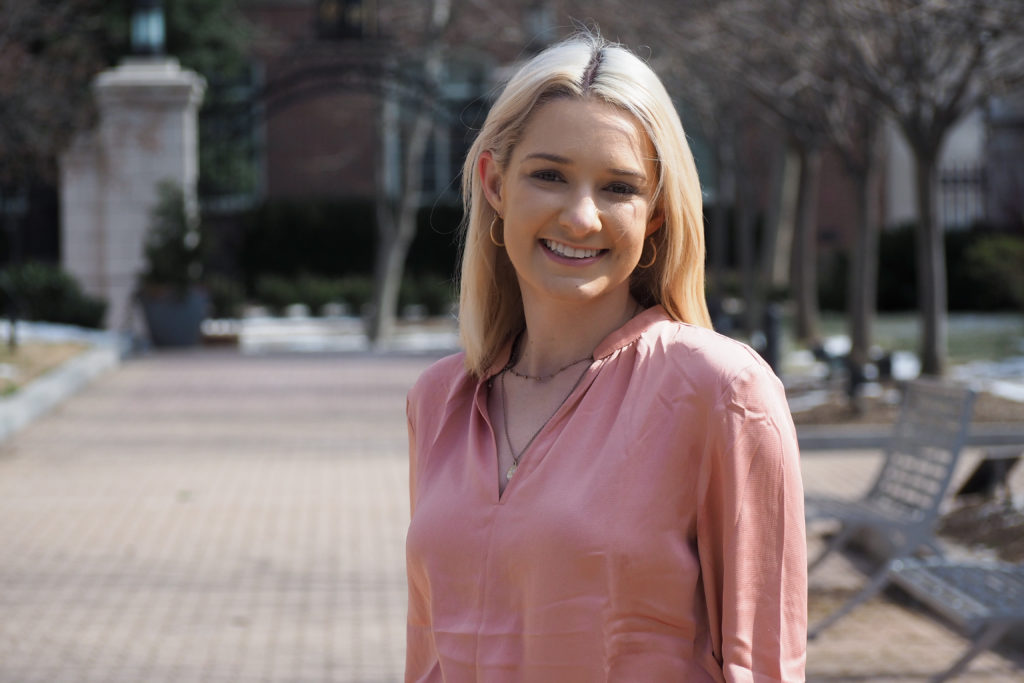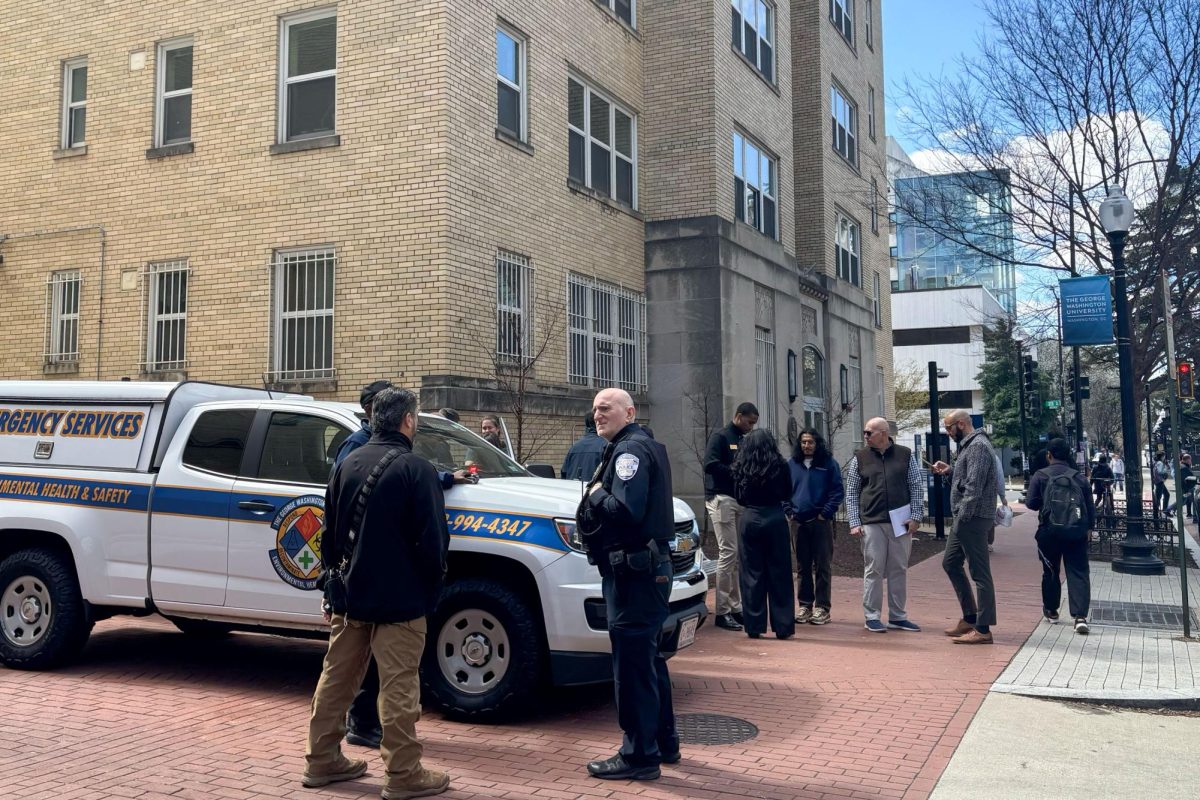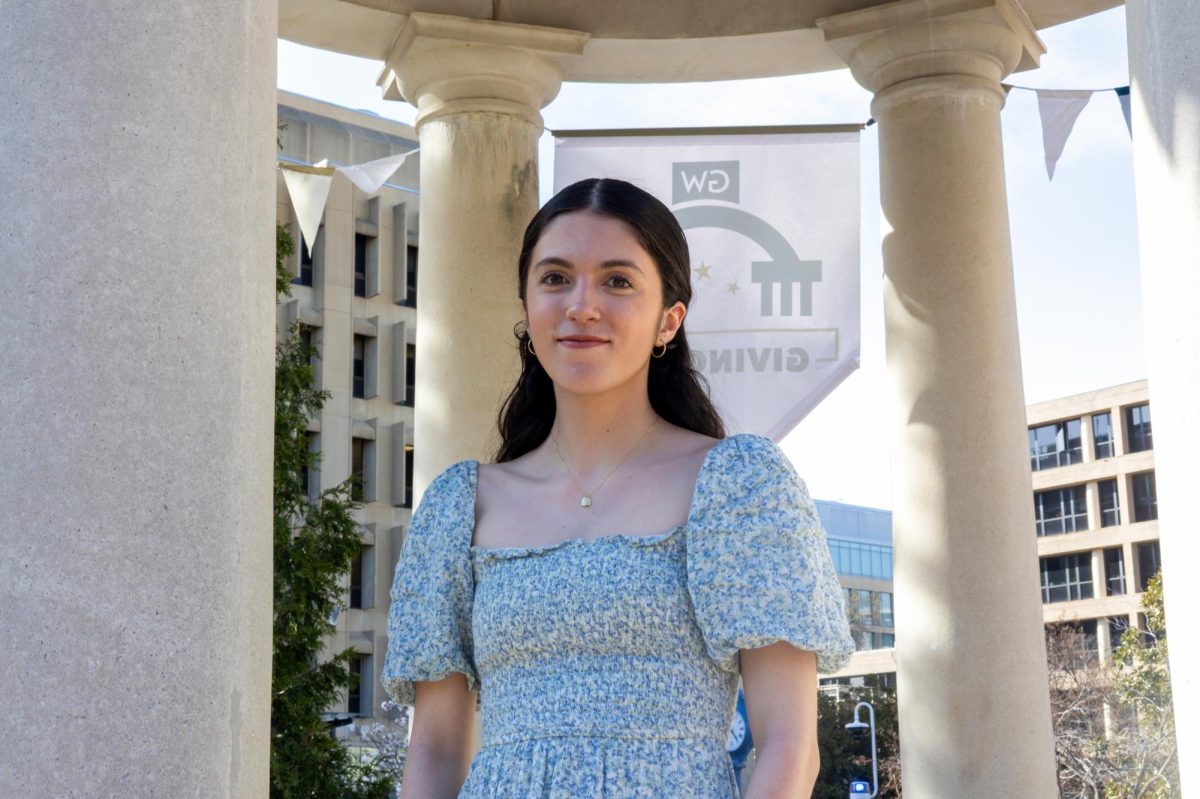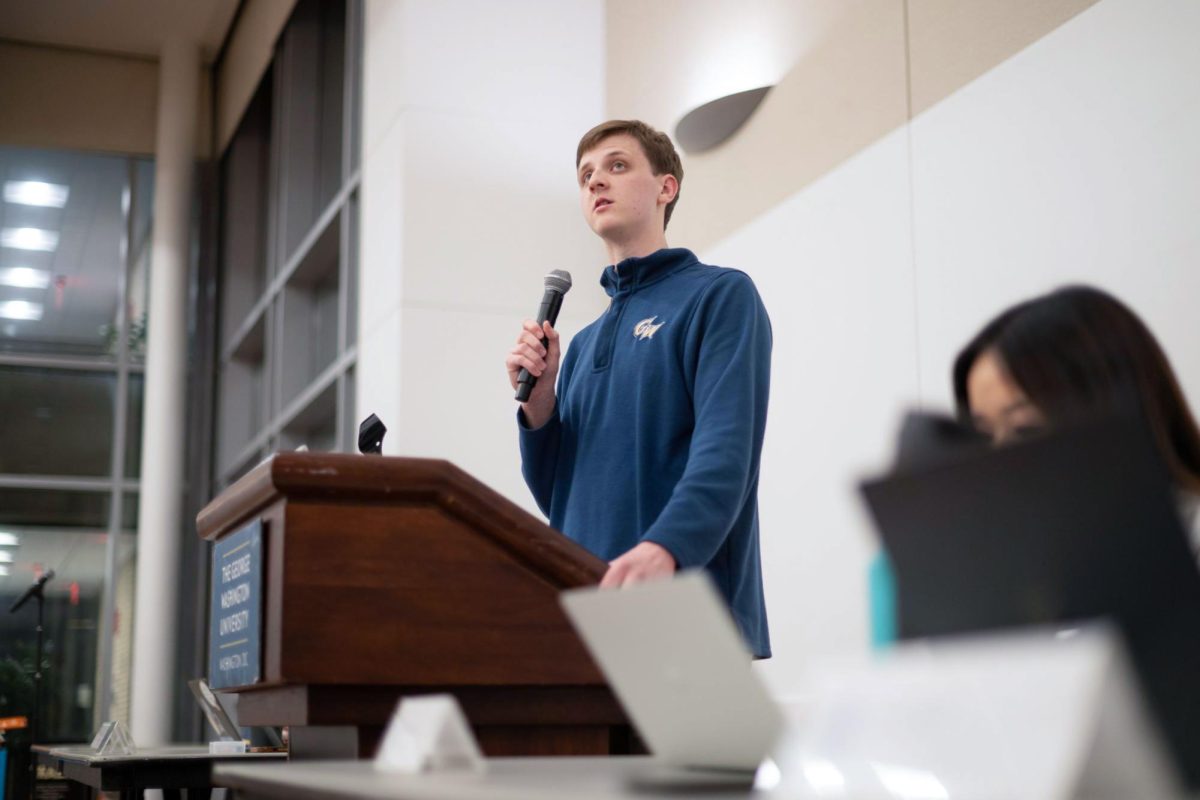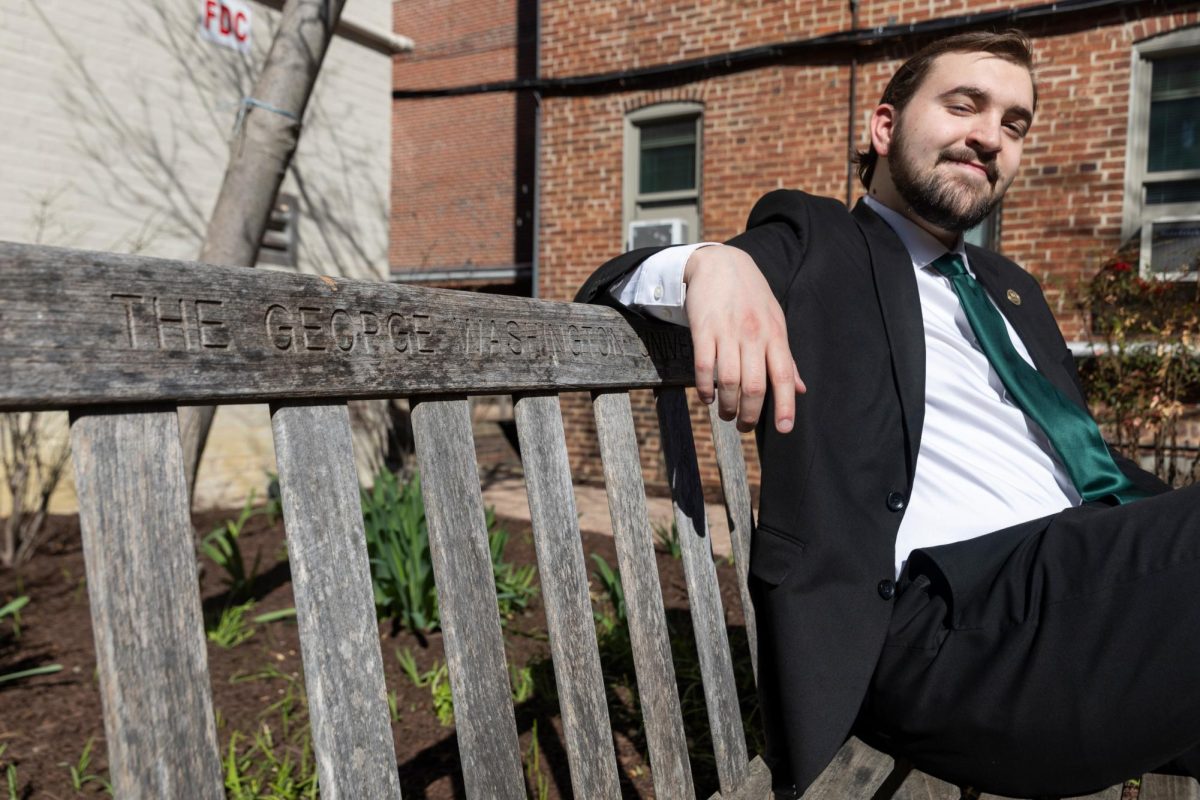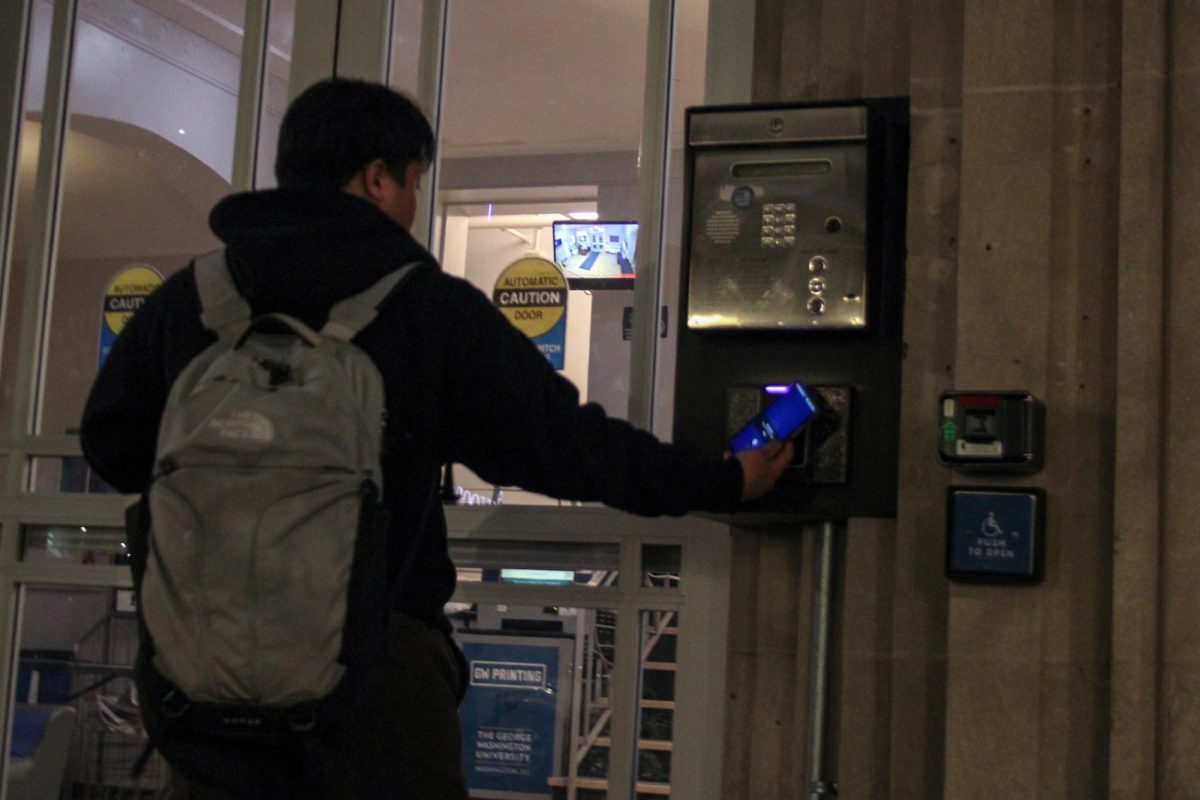A Student Association senator announced her candidacy for SA executive vice president Monday, planning to advocate for stronger mental health services and improved community relationships among SA senators.
SA Sen. Kate Carpenter, U-at-Large and a Hatchet photographer, said she plans to work with administrators, student organizations and students to improve access to mental health care and menstrual products on campus and increase school spirit. She said her experiences serving on five SA committees and caucuses, including a group updating the SA constitution and bylaws, and her involvement in organizations across campus have prepared her for the role.
“I want to make the change from the inside,” Carpenter said. “I have this opportunity. I’ve been here for two years, but I also have a mindset where I understand that the Student Association does have room to change. It does have room to update, and I have great ideas for it to change and update and how to make it run efficiently and really work for the students that sometimes it does fail to work for.”
Carpenter was SA President Brandon Hill’s first nominee to fill a vacancy for EVP after Hill ascended to the presidency, but she did not receive the requisite number of senators’ votes to confirm her nomination.
Carpenter, the first to announce a candidacy for EVP, is required to gather at least 250 signatures during the candidate registration period from Feb. 24 to March 3 and be approved by the Joint Elections Commission to qualify as a candidate. The senate approved legislation in November to cut the number of required signatures in half for candidates to run this year.
Carpenter said she has seen an “internal divide” in the SA between groups like graduate and undergraduate students, within various committees and on a “personality, friendship and colleague” basis, which she said limits the body’s ability to advocate for students. She said, if elected as EVP, she would create “community-based events” and “hangout times” in person or on Zoom for SA senators to improve community relations.
“I understand the importance of having community first, then work,” Carpenter said. “When you’re friends first and then you work together – not even friends first – but when you have a working relationship and you have a community base first, then stuff gets done and things are much more productive and needs are met way better because you have that working relationship first.”
Carpenter said Hill, the current SA president, facilitated “hangout time” for the senators last semester as executive vice president, which she intends to expand for senators.
“There’s a lot of room for more camaraderie among senators that I think would eliminate a lot of the internal divide that we have,” she said.
She added that she wants to reform mental health services offered by the Colonial Health Center to establish a “streamlined” way for students to access services. She said she wants to pursue expanding students’ “access and awareness” to telehealth – which offers physical, psychological and mental services to students via phone – during and after the COVID-19 pandemic.
She added that she intends to oversee research conducted by SA senators on how peer universities provide students access to contraceptives, birth control and menstrual products to find ways to increase GW students’ access to those items. She said she will encourage SA members to conduct research on the topic using practices from GW’s peer schools to determine how to improve access.
Carpenter said she intends to collaborate with female senators and the SA women’s caucus as well as student organizations, like People for Periods, that already focus on providing students with menstrual products.
The People for Periods project currently restocks more than half a dozen campus bathrooms with menstrual products.
She said she wants to work with Capital Peers, a group that educates students on mental health issues, and the Office of Student Life to reform sexual education at GW. In her experience at GW, she said the only time sex education was discussed among students was at freshman orientation.
Carpenter said she communicates with the sophomore class president at Stanford University to hear about their “effective” sexual education programs implemented for their students. She said as executive vice president, she could work with officials and students to create more sex education modules to get students excited to learn about the topic.
Carpenter also said she has been working with officials in Gelman Library in her capacity as a senator to add exercise bikes inside the library study areas. She said the initiative would allow students to paddle on a bike while studying to improve their physical and mental health – a project that should be complete by the fall.
“I’m really, really passionate about physical health on GW’s campus because that also translates to mental health and making sure mental health and academic performance when somebody’s physical health is better, academic performance is better,” she said.
Carpenter said she also wants to establish a “streamlined” online calendar for students dedicated to advertising all University events so students can support fellow community members and ultimately improve school spirit. She said the Office of Advertising has contacted her to help increase school spirit in “any capacity” possible with support from the SA.
“If there’s a way for us to know who’s doing what, when and where, then students can find an outlet to have their friends come watch, which is really cool,” Carpenter said.
She said she plans to encourage students to find their own “niche” for school spirit and what makes them proud to be a GW student, like attending sports games, going to the annual Midnight Breakfast or bragging about spotting a big-name politician on the street.
“Let’s make all these things that GW does provide the best they can be so students have that outlet and have that avenue to be able to find their school spirit and passion within it,” she said. “For me, it’s been basketball games, but I understand that’s not for everyone. But I still want school spirit to be able to thrive on campus, while students aren’t feeling forced to have to succumb to a traditional view of school spirit.”


